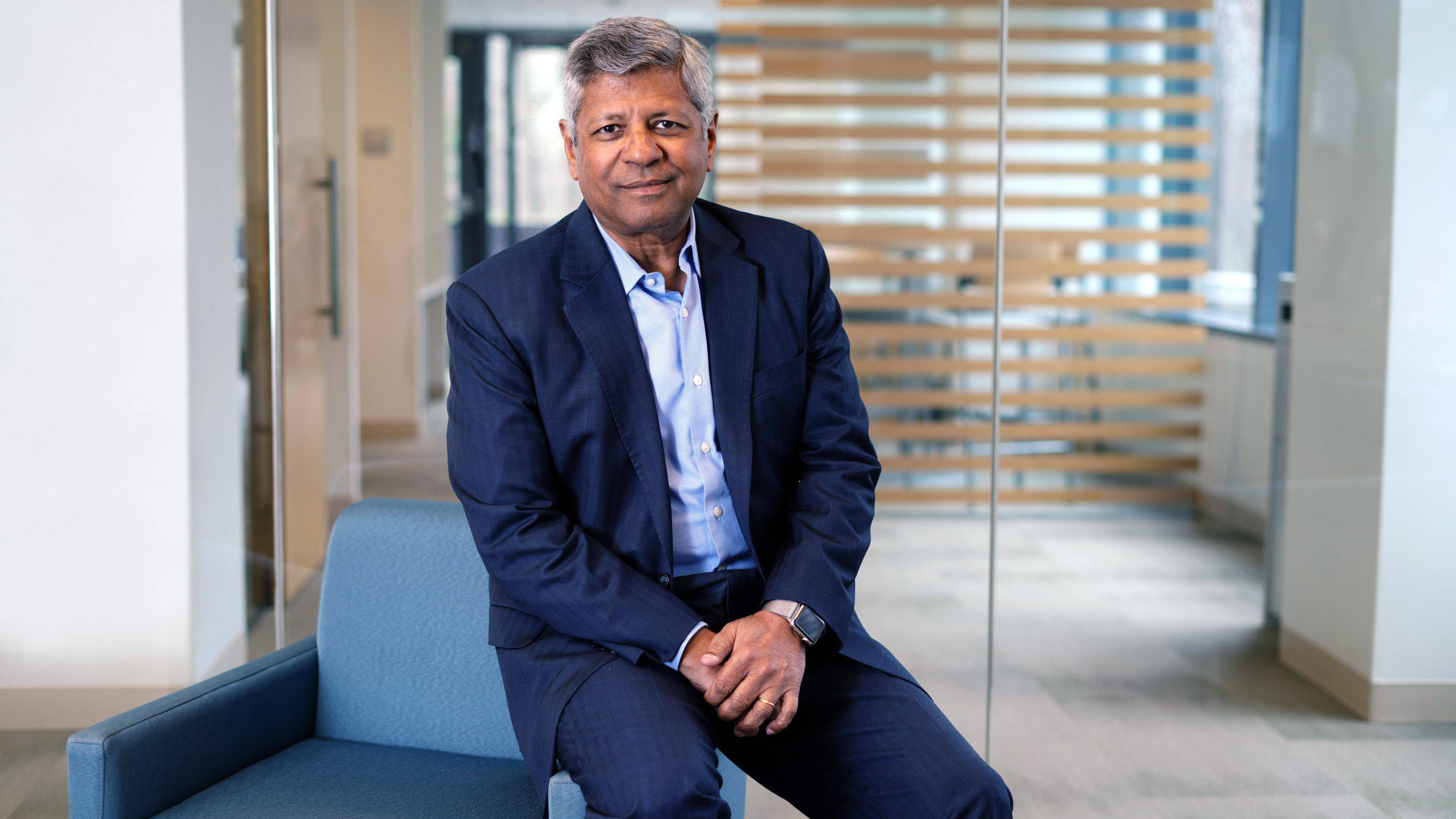“Tech Titan” aims to serve
Sudhakar Kesavan, SM ’84

When Sudhakar Kesavan, SM ’84, finished MIT’s Technology and Policy (TPP) program and joined the consulting firm ICF, he intended to get a year or two of experience and move on. Instead, he spent nearly 40 years there, serving as CEO from 1999 to 2019.
Kesavan’s professional roots are in chemical engineering, which he pursued because he loved chemistry when he was growing up in Delhi, India. “Of course, I didn’t quite realize that chemistry has nothing to do with chemical engineering,” he says. After attending the Indian Institute of Technology (IIT) Kanpur and the Indian Institute of Management Ahmedabad, he worked as a business analyst and sales engineer in Delhi and Mumbai. “My first jobs were all well and good, but I wasn’t really doing anything with any mission other than improving business efficiency and maximizing sales,” he recalls. He enrolled in TPP in hopes of having more impact on public policy.
“I learned that engineers have a language which they speak, and policymakers—who may be liberal arts majors and perhaps lawyers—speak a different language,” says Kesavan. The program helped him bridge the gaps, he says, and gave him the tools to use his engineering degree for the greatest good.
As a new associate at ICF, which focuses on the environment, energy, health, and disaster management, he quickly dove into projects addressing climate change. He worked on the first inventory of US greenhouse-gas emissions, the development of the Energy Star label for energy-efficient products and buildings, and ICF’s effort to model ozone emissions, which informed the 1987 Montreal Protocol, an international treaty to protect the ozone layer.
“Some of the projects we have worked on are fundamental to people making important decisions that impact a very significant percentage of the population around the world,” he says.
As CEO, Kesavan spearheaded ICF’s transformation from a primarily DC-based firm into a publicly traded global consultancy, and he led its effort to become the world’s first carbon-neutral professional services firm. He was named a “Tech Titan” by Washingtonian magazineand the 2009 “Executive of the Year” by the US Professional Services Council; in 2014 he was inducted into the Washington Business Hall of Fame.
Kesavan recently created the MIT-IIT Kanpur Seed Fund to foster more collaboration between his two alma maters. The fund supports early-stage research, including projects in the areas that have been the focus of his career: climate and sustainability.
Keep Reading
Most Popular
Large language models can do jaw-dropping things. But nobody knows exactly why.
And that's a problem. Figuring it out is one of the biggest scientific puzzles of our time and a crucial step towards controlling more powerful future models.
OpenAI teases an amazing new generative video model called Sora
The firm is sharing Sora with a small group of safety testers but the rest of us will have to wait to learn more.
The problem with plug-in hybrids? Their drivers.
Plug-in hybrids are often sold as a transition to EVs, but new data from Europe shows we’re still underestimating the emissions they produce.
Google DeepMind’s new generative model makes Super Mario–like games from scratch
Genie learns how to control games by watching hours and hours of video. It could help train next-gen robots too.
Stay connected
Get the latest updates from
MIT Technology Review
Discover special offers, top stories, upcoming events, and more.